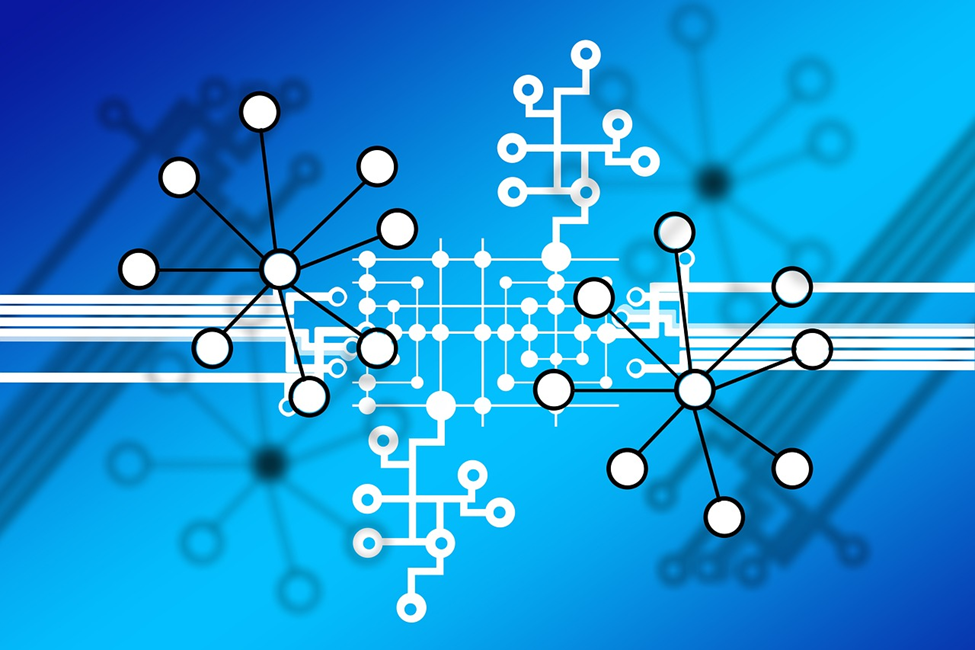Table of Contents
Recently, the gaming world has experienced a huge shift towards the adoption of blockchain technology. NFT has also been instrumental in helping achieve this goal. The gaming industry was not left out as NFT, through blockchain technology, has changed the way gamers approach games.
This new and exciting industry offers gamers, investors, and developers new opportunities and challenges. In this article, we will explore the concept of NFT and NFT gaming platforms, the role and significance of blockchain in NFT games, and others. Let’s begin.
What Is an NFT?
Before talking about gaming and NFT, let’s explore what an NFT is. NFT is a unique and indivisible digital asset that can’t be replicated. NFT isn’t like cryptocurrencies that are interchangeable and fungible, such as when you buy Bitcoin or Ethereum. NFT is a representation of the ownership of a particular digital item.
According to The Verge, NFT can be anything digital, such as an in-game item, a virtual real estate property, a piece of art, or a collectible card. NFTs are scarce and unique, making them valuable in the digital world. Every NFT is stored on the blockchain, ensuring provenance and authenticity. Ethereum is the most popular blockchain for NFT, though there are other blockchains, such as Finance Smart Chain and FLow, which are slowly gaining momentum.
NFT Gaming Platforms
NFT gaming platforms provide individuals with access to unique ownership of in-game resources. These are not your regular gaming setups where virtual items are possessed and presided over by a centralised entity. These platforms use blockchain to create a transparent and decentralised environment.
Players can truly own, trade, and transfer their in-game assets as a verifiable and unique blockchain token, creating an era where players are empowered. As players get accustomed to the concept of a player-owned asset, this drives NFT demand in gaming platforms. Many developers are innovatively looking for ways of integrating blockchain technology into the gaming system to offer players more control over their virtual assets.
Blockchain develops and transforms the gaming experience by offering a sense of rarity and ownership in the virtual world from rare skins, digital real estate, unique characters and rare weapons. Some examples of NFT gaming platforms powered by blockchain include Decentaland, CryptoKitties, The Sandbox, and Axie Infinity.
Blockchain’s Role in the Development of NFT Gaming
Blockchain is significant for NFT gaming development. Blockchain is a distributed and decentralised ledger capable of recording transactions across computer networks. Every transaction is grouped into a block, which is then chronologically linked to create a chain that cannot be changed. Some of these basic principles of blockchain that help in providing the groundwork for understanding blockchain usage in NFT gaming platforms include:
- Decentralisation: Blockchain isn’t like traditional centralised systems. It utilises peer-to-peer networks and distributes authority and control among the participants. Since it is decentralised, it offers transparency, resilience and more security.
- Immutability: When a block is included in the blockchain, it is nearly impossible to delete or change its information. This unchangeability feature is crucial in fostering the credibility and reliability of the data recorded.
- Consensus mechanisms: For a block of transactions to be validated and added to the chain, an agreement must be reached among the network participants. This common agreement mechanism includes what is called Proof of Stake (PoS) and Proof of Work (PoW), each having its own merits and demerits.
- Cryptographic security: Blockchain uses advanced cryptographic techniques to control access and secure transactions. Private and public keys are crucial in user authorization and authentication.
Blockchain’s Significance in NFT Game Development
Blockchain, a decentralised and immutable ledger, is the basis of the development of NFT gaming platforms. It provides a transparent and secure system for managing digital assets.
With smart contracts, blockchain can create and enforce rules that govern the possession, transfer, and interaction of NFT in the gaming community. Blockchain is significant in NFT game developments since it allows true ownership. Players can own in-game assets, since it is guaranteed and recorded in the blockchain. This improves the player’s gaming experience and also offers new opportunities for them to monetise their virtual assets.
Aside from ownership, blockchain’s importance also includes interoperability, transparency, and security. Blockchain’s decentralised nature ensures a secure and tamper-free environment, reducing fraud risk and unauthorised changes to in-game assets.
Formation and Possession
In-game digital assets are created using NFT launchpads, serving as dynamic incubators for developers to mint, introduce and tokenize unique in-game assets as an NFT. With blockchain, NFT launchpads offer a decentralised space for creating digital assets holding ownership features and distinct characteristics. When they are released to the marketplace, they become tradable commodities in an NFT marketplace.
An NFT marketplace for gaming assets revolutionised the virtual economy. It was founded to allow the purchase, sale, and exchange of NFTs representing in-game assets. Powered by blockchain technology, these marketplaces create decentralised ecosystems where players actively exchange their in-game assets. With this, gamers can seamlessly trade with ownership authenticity and verifiable rarity.
Smart Contract and NFT Gaming
Smart contracts are self-executing programs stating the agreement terms in codes. They are an important part of blockchain technology. Smart contracts are significant in NFT gaming platforms because they create and enforce the rules that govern the formation, ownership, and transfer of non-fungible tokens. Some key features of a smart contract include:
- Automated execution: They automate the execution of predetermined actions when certain criteria are met. In NFT gaming, automation usually transfers ownership when players attain an in-game achievement or get rewarded for completing a task.
- Programmable assets: As programmable assets, NFTs are usually governed and represented by a smart contract. Since smart contracts define the rules that allow NFTs creation, attributes, and interaction logic, they offer a level of predictability and transparency that a traditional gaming setup cannot provide.
- Decentralised ownership: Smart contracts allow NFTs to be owned, transferred, and traded without requiring intermediaries. The ownership decentralisation aligns with the blockchain principle, empowering players with real control over their virtual assets.
The Concept of Play to Earn
Play to earn has gained noteworthy attention from players in the NFT gaming space. Play-to-earn games offer players rewards in either cryptocurrency or NFT for in-game achievements. With this model, players can earn real-world value while they enjoy their favourite games. This has a huge potential to change the traditional gaming system, where players spend much time playing games with little or no real value or reward.
Certain play-to-earn games have also created opportunities for gamers to make a living. Axie Infinity is a game based on blockchain technology that lets gamers gather, reproduce and fight Axies, an in-game creature. Gamers can earn cryptocurrencies (SLP and AXS tokens) through participation in battles and completing in-game tasks.
The Challenges of Blockchain in NFT Gaming
NFT has undoubtedly brought about various positive changes and innovations. However, that doesn’t mean there are no challenges. A major issue with blockchain in NFT gaming is its environmental impact, especially on networks such as Ethereum. Ethereum requires huge amounts of energy to run its proof of work consensus mechanism. This issue of its carbon footprint has become a concern for many.
Additionally, NFT is highly speculative, leading to price volatility and a potential market bubble. Some investors and players have made huge profits, but others have also experienced losses due to NFT price fluctuation. Blockchain integration into games also results in a steep learning curve for beginner players who might not understand terms such as cryptocurrencies, blockchain transactions, and wallets.
Endnote
Blockchian’s future in NFT gaming development is one of innovation, economic empowerment, and connectivity. With developers pushing the boundaries and players exploring the vast potential of the decentralised virtual world, the evolution might just shape the NFT gaming future.













